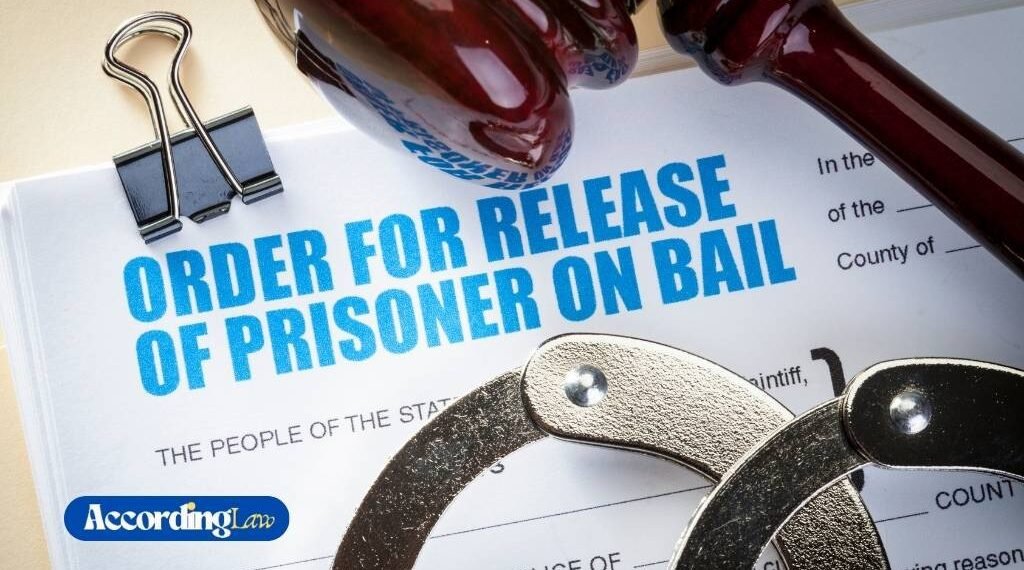Being arrested is one of the most stressful experiences anyone can face. Whether you’re innocent or guilty, the immediate concern after an arrest is getting out of jail and returning to your family, job, and normal life. Understanding how the bail system works in California can help you or your loved ones navigate this challenging situation more effectively.
Table of Contents
What is Bail and Why Does It Exist
Bail is a constitutional right designed to balance two competing interests: the presumption of innocence and public safety. Under the Eighth Amendment of the U.S. Constitution, excessive bail shall not be required. California law echoes this protection, ensuring that most defendants have the right to be released from custody while awaiting trial.
The purpose of bail is simple: it provides a financial incentive for defendants to appear at all required court proceedings. When you post bail, you’re essentially guaranteeing the court that you’ll show up for your trial. If you attend all hearings, the bail is returned (minus any fees). If you fail to appear, the bail is forfeited, and a warrant is issued for your arrest.
How is Bail Determined
In California, bail amounts are typically set according to a county bail schedule, a predetermined list of bail amounts for specific offenses. However, judges have discretion to deviate from these schedules based on several factors:
In some cases, defendants may be released on their own recognizance (OR release), meaning no bail is required. This typically applies to minor offenses and defendants with strong community ties and no criminal history.
The Timeline: From Arrest to Release
Understanding the timeline can help manage expectations during an already stressful situation.
Arrest and Transport: After arrest, you’ll be transported to the local jail facility. This could be a county jail or city holding facility depending on where the arrest occurred.
Booking Process: Booking typically takes 2-6 hours, though it can be longer during busy periods. During booking, you’ll be photographed, fingerprinted, and your personal information will be entered into the system. Your property will be inventoried and stored.
Bail Setting: For many offenses, bail is set according to the preset bail schedule immediately after booking. For more serious charges, you may need to wait for a bail hearing, which must occur within 48 hours (not counting weekends and holidays).
Posting Bail: Once bail is set, it can be posted. The time to release after bail is posted varies by facility but typically ranges from 4-12 hours.
Release: Upon release, you’ll receive documentation outlining your court date and any conditions of release.
Methods of Posting Bail
California law provides several ways to post bail:
Cash Bail:
You or someone on your behalf can pay the full bail amount in cash to the court. This money is held until the case concludes. If you attend all hearings, the full amount is returned (though some counties deduct small administrative fees). The major downside is that few people have tens of thousands of dollars available immediately.
Property Bond:
Real property (like a house) can be used as collateral, though this process is complex, time-consuming, and not available in all California counties. The property must have equity that exceeds the bail amount by a significant margin (typically double).
Bail Bonds:
This is the most common method. A bail bond company posts the full bail amount on your behalf in exchange for a non-refundable premium of 10% of the bail amount. This premium is set by California law and is not negotiable. For example, if bail is $20,000, you pay $2,000 to the bail bond company. While you don’t get this money back, it makes release accessible without tying up large amounts of capital.
Own Recognizance (OR) Release:
As mentioned, this requires no financial payment but is only granted in specific circumstances for lower-level offenses.
The Role of Bail Bond Companies
Bail bond companies serve as sureties; they guarantee to the court that the defendant will appear at all required proceedings. In California, bail agents must be licensed by the Department of Insurance and are regulated by state law.
How It Works: When you contract with a bail bond company, you (or your co-signer) become responsible for ensuring the defendant appears in court. You’ll sign a contract agreeing to pay the 10% premium and possibly provide collateral depending on the bail amount and circumstances.
Collateral Requirements: For higher bail amounts, bail bond companies may require additional collateral beyond the premium. This could include vehicles, real estate, jewelry, or other valuable property. The collateral is returned once the case concludes and all obligations are met.
24/7 Service: Arrests don’t follow business hours. Reputable bail bond companies operate 24/7, including weekends and holidays, to ensure defendants can be released as quickly as possible.
Geographic Considerations: Different counties and cities have different procedures and facilities. In Orange County, for example, the main county jail is in Santa Ana, but there are also city jails in Anaheim, Fullerton, and other municipalities. Experienced bail bond providers understand the specific requirements and procedures at each facility, which can significantly speed up the release process.
Your Obligations After Posting Bail
Being released on bail comes with serious responsibilities:
Court Appearances:
You must attend every scheduled court date. Missing even one hearing can result in immediate bail revocation, re-arrest, and forfeiture of the bail amount. If you used a bail bond, the company will also come after you or your co-signer for the full bail amount.
Conditions of Release:
The court may impose additional conditions such as:
Violating any condition can result in bail revocation and additional criminal charges.
Staying in Contact:
Maintain communication with your attorney and, if applicable, your bail bond company. If you need to travel for work or family emergencies, obtain court permission in advance.
Employment and Housing:
While out on bail, maintain stable employment and housing when possible. These factors demonstrate reliability and can positively influence your case.
What Happens If You Miss Court?
Missing a court date triggers a series of serious consequences:
Bench Warrant: The judge will immediately issue a bench warrant for your arrest. This means you can be arrested at any time, including during routine traffic stops.
Bail Forfeiture: The court will order the bail forfeited. If you posted cash bail, you lose that money. If you used a bail bond, the bond company must pay the court the full amount, and they will then pursue you or your co-signer for repayment.
Additional Charges: In California, willfully failing to appear in court is itself a criminal offense under Penal Code Section 1320. This can add additional jail time and fines to whatever charges you were originally facing.
Reduced Options: If you’re arrested again on the bench warrant, the court is far less likely to grant bail a second time.
Recent Bail Reform in California
California has been at the forefront of bail reform discussions. In 2018, the legislature passed SB 10, which would have eliminated cash bail entirely, replacing it with a risk assessment system. However, the law was suspended before taking effect and ultimately rejected by voters in 2020.
Despite this, many California jurisdictions have implemented their own reforms, including expanded OR release for misdemeanors and low-level felonies. Some counties have raised the threshold for offenses requiring bail, meaning more defendants are released without financial conditions.
These reforms recognize that the traditional cash bail system can penalize poverty, people charged with identical crimes receive vastly different treatment based solely on their financial resources. Wealthy defendants can afford bail and maintain their lives while fighting charges, while poor defendants may spend months in jail awaiting trial simply because they cannot afford bail.
Choosing the Right Path Forward
If you or a loved one is arrested, taking immediate action is crucial:
Contact an Attorney: Before anything else, secure legal representation. Your attorney can advocate for lower bail, OR release, or favorable release conditions.
Understand Your Options: Don’t assume you need a bail bond without exploring all alternatives. Depending on the charge and circumstances, OR release might be possible.
Choose Reputable Providers: If you need a bail bond, work with licensed, established companies. Check reviews, verify licensing with the California Department of Insurance, and ensure they clearly explain all terms and fees.
Know Your Location: Different counties handle bail differently. For instance, those needing bail bonds Costa Mesa services should work with providers familiar with Orange County’s specific procedures, whether dealing with the main Santa Ana facility or smaller city jails throughout the county.
Prepare for the Long Term: Getting out of jail is just the first step. Use your freedom wisely to build your defense, maintain employment, and demonstrate to the court that you’re taking the charges seriously.
Conclusion
The bail system exists to protect your constitutional right to freedom while ensuring you appear for trial. While navigating this system can feel overwhelming, understanding your rights and options empowers you to make informed decisions during a critical time.
Whether you’re able to post cash bail, secure a property bond, or need professional bail bond services, the goal is the same: regaining your freedom so you can effectively fight your case alongside your attorney. Knowledge of the process, your obligations, and the resources available can make all the difference in achieving the best possible outcome.


